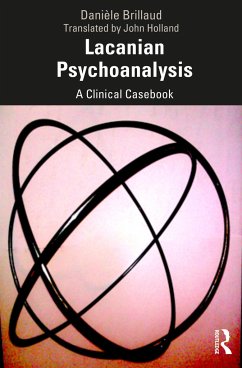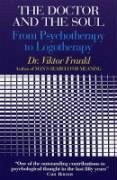
On the Theory and Therapy of Mental Disorders
An Introduction to Logotherapy and Existential Analysis
Versandkostenfrei!
Versandfertig in 6-10 Tagen
34,99 €
inkl. MwSt.
Weitere Ausgaben:

PAYBACK Punkte
17 °P sammeln!
This Classic Edition of On the Theory and Therapy of Mental Disorders: An Introduction to Logotherapy and Existential Analysis sees Viktor E. Frankl, bestselling author and founder of logotherapy, introduce his key theories and apply them to work with patients exhibiting symptoms of neurosis.James M. DuBois' translation of Frankl's Theorie und Therapie der Neurosen allows English readers to experience this essential text on logotherapy in an invigorating new light. DuBois also provides a new Preface to the book, highlighting the importance of both the original volume and Frankl's work at large...
This Classic Edition of On the Theory and Therapy of Mental Disorders: An Introduction to Logotherapy and Existential Analysis sees Viktor E. Frankl, bestselling author and founder of logotherapy, introduce his key theories and apply them to work with patients exhibiting symptoms of neurosis.
James M. DuBois' translation of Frankl's Theorie und Therapie der Neurosen allows English readers to experience this essential text on logotherapy in an invigorating new light. DuBois also provides a new Preface to the book, highlighting the importance of both the original volume and Frankl's work at large, and framing it within contemporary psychotherapy and psychoanalysis. Throughout the book, Frankl uses his unique logotherapeutic approach to analyse neuroses and their impact. He looks in turn at how neuroses may be informed by psychoses, somatic disorders, and the mental implications of being diagnosed with a physical medical condition, as well as potential psychological, spiritual, and societal causes of neuroses.
Masterfully translated and thoroughly annotated, this volume brings Frankl's trailblazing theories into the 21st century and will be of great interest to psychiatrists and psychotherapists alike.
James M. DuBois' translation of Frankl's Theorie und Therapie der Neurosen allows English readers to experience this essential text on logotherapy in an invigorating new light. DuBois also provides a new Preface to the book, highlighting the importance of both the original volume and Frankl's work at large, and framing it within contemporary psychotherapy and psychoanalysis. Throughout the book, Frankl uses his unique logotherapeutic approach to analyse neuroses and their impact. He looks in turn at how neuroses may be informed by psychoses, somatic disorders, and the mental implications of being diagnosed with a physical medical condition, as well as potential psychological, spiritual, and societal causes of neuroses.
Masterfully translated and thoroughly annotated, this volume brings Frankl's trailblazing theories into the 21st century and will be of great interest to psychiatrists and psychotherapists alike.














